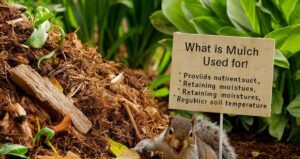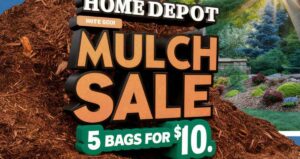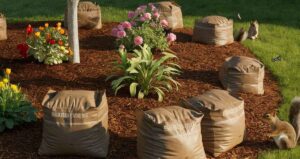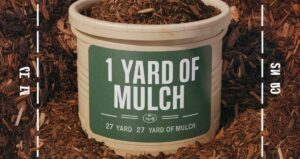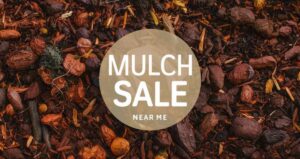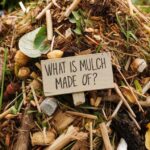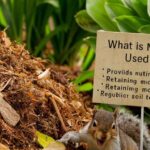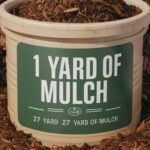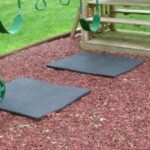The best mulch for tomato plants is organic material like straw or compost. This provides moisture retention, weed suppression, and nutrient enrichment, fostering optimal conditions for healthy tomato growth.
Embarking on a thriving tomato garden journey? Unveil the secret to lush tomatoes with the best mulch for tomato plants. From fostering moisture retention to suppressing weeds, this gardening essential, whether organic like straw compost or synthetic, is your key to cultivating a robust and fruitful tomato harvest.
Selecting the best mulch for tomato plants is crucial for a thriving garden. Organic options like straw or compost offer moisture retention, weed suppression, and nutrient enrichment. Plastic mulch provides additional benefits by warming the soil. Tailoring your choice to your specific needs ensures optimal conditions for healthy and productive tomato plants.
Choosing the Ideal Mulch for Tomato Plants: Nurturing Your Garden
Embarking on a successful tomato cultivation journey involves selecting the right mulch. Discover the optimal options to foster growth, moisture retention, and weed suppression in the unique table below.
| Mulch Type | Advantages | Considerations |
| Organic (Straw) | Enhances moisture retention, weed suppression. | Enhances moisture retention, and weed suppression. |
| Organic (Compost) | Warms soil, controls weeds and retains moisture. | Apply a thin layer to prevent potential issues. |
| Plastic Mulch | Securely anchor to prevent displacement by the wind. | Ensure it’s free of seeds, and may attract pests. |
What is best to put around tomato plants?
Mulching around tomato plants offers numerous benefits for their health and productivity. Here are some popular and effective options:
Straw or Hay
Straw or hay is a traditional and widely used organic mulch. It helps retain soil moisture, suppress weeds, and create a barrier between the soil and the tomato plant, reducing the risk of soil-borne diseases.
Compost
Well-aged compost is an excellent choice for tomato plants. It not only provides essential nutrients but also improves soil structure and water retention. Apply a layer of compost around the plants, leaving space around the stems.
Wood Chips or Bark
Wood chips or bark mulch are durable and break down slowly, offering long-term benefits. It helps retain moisture, suppress weeds, and add organic matter to the soil as it decomposes.
Plastic Mulch
Black plastic mulch is effective, in cooler climates. It warms the soil, regulates temperature, suppresses weeds, and enhances moisture retention. Securely anchor the plastic to prevent displacement by wind.
Grass Clippings
If using grass clippings as mulch, ensure they are untreated and free of herbicides. Grass clippings help retain moisture and suppress weeds. Apply a thin layer to avoid matting and potential odor issues.
When mulching around tomato plants, it’s essential to leave some space around the base of the plant to prevent potential issues like stem rot. Experiment with different mulching materials to find what works best for your specific growing conditions.
What kind of mulch is best for tomatoes?
Choosing the Best Mulch for Tomatoes A Guide to Optimal Growth

Embarking on a journey to cultivate robust and flavorful tomatoes involves more than just selecting the right seed varieties. Mulching plays a crucial role in creating an environment that fosters healthy growth and high yields.
Understanding the Importance of Mulching for Tomatoes
Enhancing Soil Moisture Retention
Tomatoes thrive in consistently moist soil, and the right mulch can be a game-changer. It acts as a protective layer, reducing water evaporation and ensuring a steady supply of moisture to the plants.
Suppressing Weeds and Maintaining Soil Temperature
Weeds compete with tomatoes for nutrients and water. Mulch not only suppresses weed growth but also helps regulate soil temperature, providing an optimal environment for tomatoes to flourish.
Exploring Different Types of Mulch for Tomatoes
Organic Mulches: Straw and Compost
Organic mulches like straw and compost offer a rich source of nutrients, improve soil structure, and contribute to moisture retention. Straw is particularly effective in preventing soil-borne diseases, while compost adds valuable organic matter to the soil.
inorganic Mulch Plastic
Plastic mulch, in the form of black plastic sheets, warms the soil, controls weeds, and enhances moisture retention. It’s a practical choice for early-season planting and can significantly boost tomato yields when used correctly.
Natural Materials Wood Chips and Bark
Wood chips and bark mulch are durable options that break down gradually, providing long-term benefits. They help retain moisture, suppress weeds, and add organic matter to the soil as they decompose.
As we delve into the specifics of each mulching option, consider your local climate, soil conditions, and personal preferences to determine the best mulch for your tomato plants.
The Importance of Mulching in Tomato Cultivation
The Importance of Mulching in Tomato Cultivation Elevating Your Gardening Game
Embarking on a successful journey of tomato cultivation requires a comprehensive understanding of the crucial role mulching plays in fostering optimal growth. Mulching isn’t merely a landscaping aesthetic.
Mulching plays a vital role in moisture retention, creating a shield against water evaporation and ensuring a consistent water supply—a key factor for robust tomato development. Beyond this, mulch serves as a natural weed suppressor, reducing competition for nutrients and fostering a well-maintained garden bed.
Types of Mulch for Tomato Plants
Choosing the right mulch is a pivotal decision in the quest for healthy and fruitful tomato plants. The diverse world of mulches offers an array of options, each with its unique benefits and considerations. From organic choices like straw and compost to inorganic options like plastic, The characteristics of different mulches is key to creating an environment that supports tomato cultivation.
Considerations for Choosing the Best Mulch
Selecting the best mulch is a pivotal decision in nurturing a thriving garden. With a plethora of options available, each with its unique set of benefits and considerations, making an informed choice is essential for optimal plant health. Beyond the aesthetic appeal, factors such as moisture retention, weed suppression
Considerations also extend to the local climate, as certain mulches perform better in varying weather conditions. The intricacies of each type, whether organic like straw or compost or inorganic like plastic, empower gardeners to tailor their choices to the specific requirements of their plants and local environment.
Nurturing a Thriving Tomato Garden
Cultivating a flourishing tomato garden is a rewarding endeavor that requires a blend of care, knowledge, and strategic choices. As one of the most beloved garden crops, tomatoes thrive in environments where they receive proper attention and thoughtful cultivation.
FAQ,s
Is straw a good mulch for tomato plants?
Yes, straw is excellent as it retains moisture, suppresses weeds, and provides a favorable environment for tomato growth.
Can I use compost as mulch for tomatoes?
Absolutely! Compost enriches soil nutrients, aids in moisture control, and contributes to overall plant health.
Does plastic mulch work well for tomatoes?
Yes, plastic mulch warms the soil, controls weeds, and helps retain moisture, creating optimal conditions for tomato plants.
Are there any considerations when using straw as mulch?
Yes, ensure the straw is seed-free and be cautious about potential pest attraction. Apply a thin layer to prevent issues.
conclusion
The choice of the best mulch for tomato plants depends on your specific gardening goals. Whether opting for organic options like straw or compost for moisture retention and weed suppression or utilizing plastic mulch for additional benefits like soil warming, each choice contributes to fostering a healthy and productive tomato garden.
Consider the unique advantages and any specific considerations, such as seed presence or pest attraction, to tailor your mulching approach. The right mulch provides the optimal environment for robust tomato growth, ensuring a fruitful harvest and a flourishing garden.


